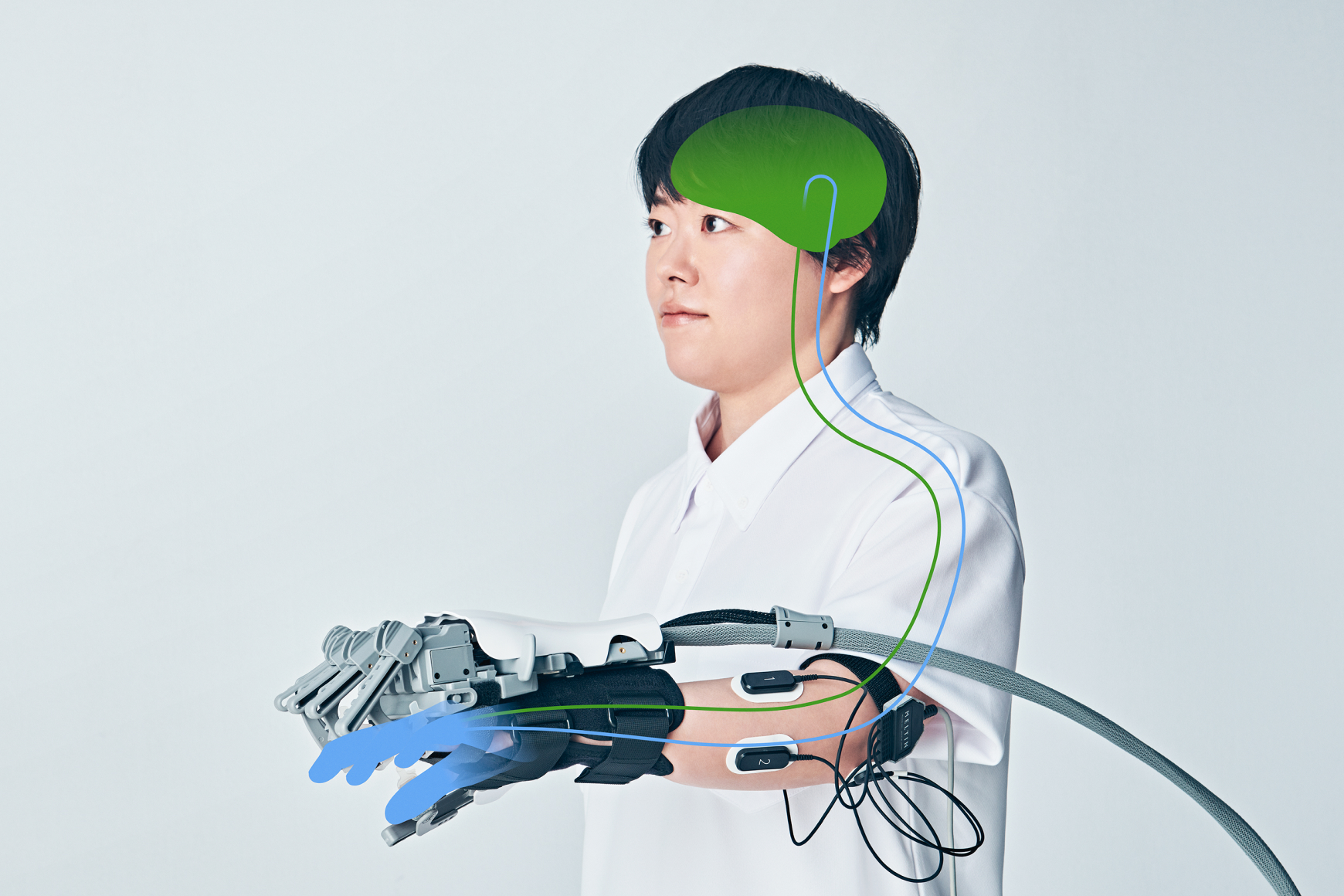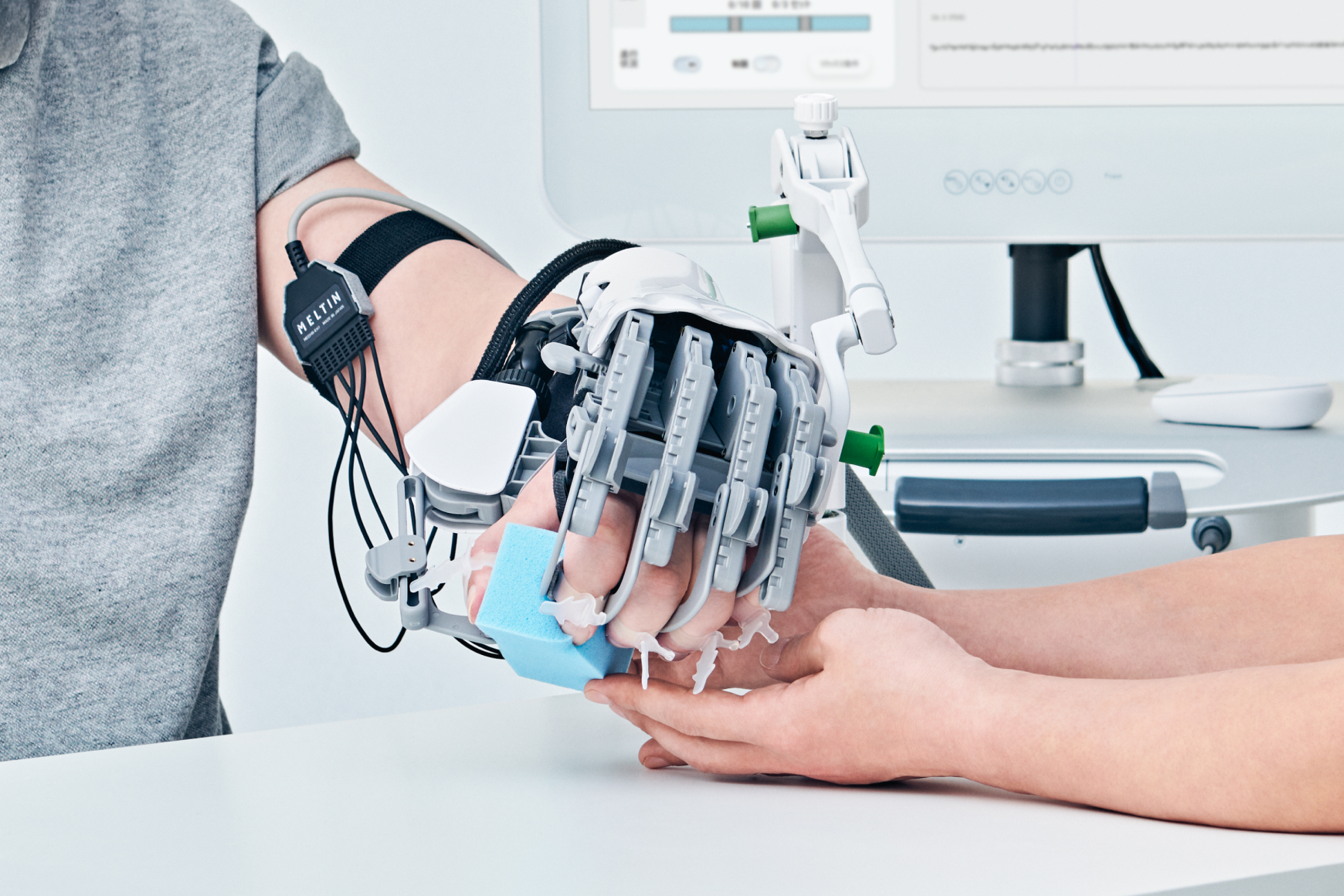HEALTHCARE
MELTIN is working on healthcare R&D with the aim of realizing a
“world where everyone, regardless of age or physical condition, is empowered to live freely in any way they like.”
-
Robotic neurorehabilitation devices are a top priority research theme for MELTIN. These devices use AI to analyze bio-signals, and read how a person with hemiplegia due to stroke or other causes wants to move, and assist them in realizing their desired movements.
Rehabilitation based on neuroscience is known as neurorehabilitation; through this device, we aim for neurorehabilitation that involves the brain relearning how to move the body by repeating movements according to the wearer’s intent. MELTIN’s MELTz Hand Rehabilitation System is available for purchase.
The system has received approval as a certified medical device. See here for more details.
https://www.meltin.jp/en/products/medical/meltz/ -
Paralysis of the body and the reduced motor functions that accompany strokes occur due to damage to the areas of the brain associated with movement. Therefore, in order to recover their motor functions, patients must reconstruct different parts of the brain (separate from the part that has been damaged) and their brains must relearn methods of movement. We aim to offer neurorehabilitation by providing assistance for actions according to motor intent so as to stimulate the brain motor re-learning. The goal is the recovery of motor function by making use of the brain’s plasticity (the function that changes the brain’s activity to match the environment).

-
MELTIN’s robotic neurorehabilitation devices analyze the electric signals in muscles, recognizing the movement the person is trying to perform, and assisting that movement.
Then, the device worn on the body assists them with these movements. As robots do not become fatigued, the device can provide accurate assistance for any number of repetitions of the same action.
Utilizing a robot can offer more opportunities for rehabilitation, and we anticipate that this will stimulate the reconstruction of the neural network that conveys commands from the brain, and promote the recovery of body function.
Providing rehabilitation by combining three pioneering technologies
MELTIN is a venture company involved in cyborg projects that leverage our strengths in bio-signal and biomimetic robotic technology. The robotic neurorehabilitation device also aims to combine biological signals and our original algorithms that analyze bio-signals using AI, and carry out effective rehabilitation by accurately registering the intended movements of the wearer and providing assistance with firmly responsive movements.



because it is simple, safe, and user-friendly
MELTIN’s “robotic neurorehabilitation device” is set up just by putting the motion assistance device on the fingers and attaching a sensor to the forearm. It is possible to adjust the size of the device according to the length of the fingers, making it highly wearable, and it can be used on either the left or right hand. The myoelectric analysis is complete within a minute of putting the device on, and the rehabilitation starts. The inside of the main body is equipped with motors to move the wires and a computer for analyzing bio-signals, ensuring that the motion assistance device worn on the hand is lightweight, weighing no more than 500 g. The device also ensures the safety of the wearer by controlling the power. In addition, individual finger control enables the wearer’s fingers to make various actions with differing speeds according to the wearer’s condition. Using the five-digit type makes it easy to carry out occupational therapy at varying degrees of difficulty, and reducing the components that cover the palm of the hand as much as possible for the wearer to feel the sensation of gripping something. The device is also characterized by an easily comprehensible, user-friendly UI (user interface).



